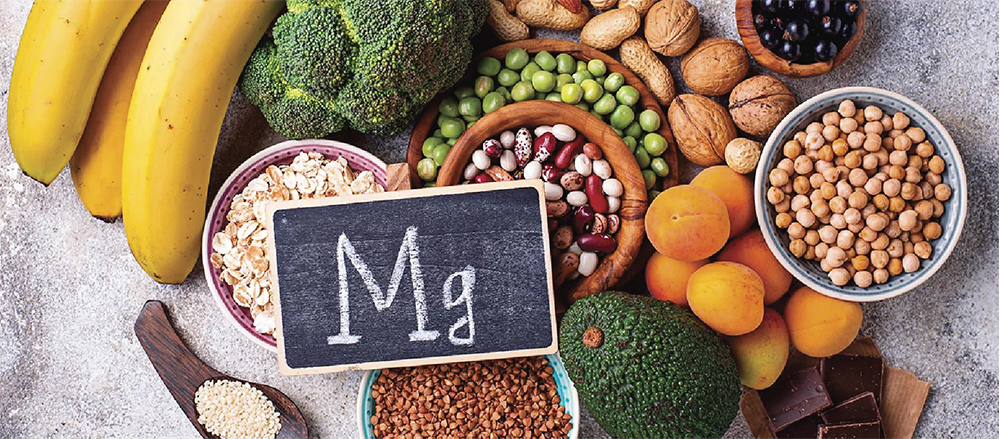July 2022
Jacqui Lewis - BHSc Nutritional and Dietetic Medicine
The Importance of Magnesium in the Body

Magnesium is the fourth most abundant mineral in the human body,
which is responsible for supporting hundreds of chemical reactions in your body.
Unfortunately, studies suggest that about 50% of the population gets less than the recommended daily amount of magnesium.
Magnesium is involved in hundreds of biochemical reactions in your body.
About 60% of magnesium in your body is found in the bone. The rest is in muscles, soft tissues and fluids, including blood.
One of magnesium's main roles is acting as a helper molecule in the reactions continuously performed by enzymes.
Other functions include:
Energy Creation
Helps convert food into energy.
Protein Formation
Helps create new proteins from amino acids. to rebuild tissue, and to lower inflammation.
Gene Maintenance
Helps create and repair DNA.
Muscle Movements
Part of the contraction and relaxation of muscles.
Nervous System
Helps regulate neurotransmitters, which send messages throughout your brain, nervous system and your muscles.
Health Benefits of Magnesium
Magnesium may help with the following health conditions:
Maintaining cardiovascular health and bone density.
Migraines and headaches, including tension headaches.
Stress, irritability, insomnia and anxiety, muscle tension.
Signs of Magnesium Deficiency
- Fatigue
- Muscular problems such as cramps
- Aches and pains
- Period pain
- Premenstrual syndrome symptoms include mood swings, fluid retention, and premenstrual migraines.
Dietary Sources of Magnesium
Magnesium-rich foods include:
- Dark green leafy vegetables
- Legumes
- Nuts
- Seeds
- Whole grains
- Soybeans
- Cocoa

A significant amount of magnesium may be lost from foods during processing and refining. It's best to avoid refined and processed foods and include fresh foods that deliver helpful magnesium levels to maximize your magnesium intake.
Top 10 Dietary Sources of Magnesium
1. Spinach
157mg per 1 cup
2. Chard
154mg per 1 cup
3. Pumpkin Seeds
92mg per 1/8 cup
4. Yogurt or Kefir
50mg per 1 cup
5. Almonds
80mg per 1 cup
6. Black Beans
60mg per 1/2 cup
7. Avocado
58mg per 1 medium
8. Figs
50mg per 1/2 cup
9. Dark Chocolate
95mg per 1 square
10. Banana
32mg per 1 medium
